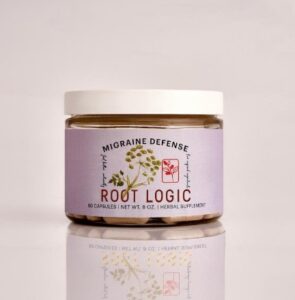The Surprising Link Between Cheese and Migraines
Cheese and migraines have been linked due to certain compounds found in cheese that may act as triggers for migraines in susceptible individuals. This article delves into the potential culprits, such as tyramine, histamine, and aged cheese varieties, and their impact on migraine headaches. Gain insights into the relationship between cheese consumption and migraines, along with helpful tips on managing your diet to potentially reduce the risk of migraine attacks. Have you ever wondered if (or why) cheese could be the cause of your migraine? I certainly haven’t, but continue to read to find out more.
Migraines are a debilitating condition that affects millions of people worldwide. While the exact cause of migraines is not fully understood, it is believed that certain triggers, such as food, can play a role in their development. One food that has been linked to migraines is cheese.
Common Migraine Causes
We know that migraines can be triggered by different things for different people. There are a variety of factors that are linked to migraines:
-
Too much stress
-
Bad lighting for extended periods of time
-
Different types of smells
-
A change in the weather
-
Many different food times, additives, preservatives, etc
-
And many other factors

Cheese and Migraines: can cheese be a migraine trigger?
These can all trigger the onset of head pain, but is it true? Can cheese trigger a migraine?
With the variety of different types of cheeses readily available to us these days, more and more people are acquiring a refined cheese palate, but could our love for the good things in life be triggering major headaches?
Some types of cheese have been known to cause migraines. Cheeses that are linked to severe headaches and migraines are the aged and fermented types of cheeses that are high in tyramine.
Tyramine forms as the proteins in cheese break down over time, it is a protein by-product that plays a part in the onset of migraines because it causes narrowing of the blood vessels. Blood pressure increases and causes headaches and migraines when blood vessels narrow.
Most common types of cheese to cause migraines
Research has shown that certain types of cheese, such as aged cheddar, blue cheese, and feta, contain high levels of a compound called tyramine. Tyramine is a naturally occurring compound that is formed when amino acids in food break down over time. When tyramine is consumed in high amounts, it can cause the blood vessels in the brain to constrict, leading to a migraine headache.
-
Cheddar
-
Muenster
-
Swiss
-
Blue cheese
-
English Stilton
-
Feta
-
Brie
-
Gorgonzola
-
Gouda
-
Parmesan
There is little research on cheese as a migraine trigger, but the studies that have been done show that aged cheese is more likely to cause a headache.
The longer a cheese ages the more tyramine it has in it and the more tyramine it has in it the greater the effect it has on the narrowing of blood vessels.

Are you Tyramine sensitive?
Other food items that are known to contain high levels of tyramine include fermented and aged foods like soy sauce, pickled herring, and smoked fish. Alcoholic beverages such as red wine, beer and champagne, processed meats like bacon and salami, and nuts and chocolate also contain tyramine.
You might be tyramine sensitive if you have the following symptoms after eating aged cheese or food high in tyramine: elevated heart rate, increased blood pressure, sweating, chills, hot feeling, redness of the skin, hives, dizziness, clamminess, mild to severe headaches.
Going on a low tyramine diet could help reduce your headaches and migraines. Avoiding certain foods and additives that narrow blood vessels is a way to preserve good blood flow.
Alternatives to aged cheese
Some alternatives to try instead of aged cheese are: ricotta, cottage cheese, cream cheese, feta, mozzarella, burrata and mascarpone.
Now that we know what it is in aged cheese that is causing headaches and migraines, we can start being tyramine smart. Thinking about how to manage your tyramine intake and still eating good cheese is key if you have figured out that Tyramine is a trigger for your headaches and migraines.

What you can do
If you experience migraines and suspect that cheese may be a trigger, it is important to keep a food diary to track what you eat and when migraines occur. This will help you to identify potential triggers and make changes to your diet to avoid them. It is also important to speak to your healthcare provider or a dietitian to help you identify and manage food triggers.
If you find that cheese is a trigger for your migraines, you do not have to give up cheese altogether. Instead, you can try reducing your intake of cheese or switching to low-tyramine varieties such as mozzarella or cottage cheese. You can also try eating cheese with other foods that can help to neutralize the effects of tyramine, such as carbs like bread or crackers.
Have you heard Migraine Defense from Root Logic?
Research-backed natural formula, designed to proactively fight the root causes of headache and migraine onset—namely inflammation, stress, blood stasis, and muscle tension. Rather than only taking an OTC drug in response to pain, try to get ahead of experiencing the pain altogether. Click on the link to find out more about the headache & migraine defense by Root Logic.

In conclusion
In conclusion, while cheese may not be the trigger for all migraine sufferers, certain types of cheese that contain high levels of tyramine can trigger migraines in some people. By identifying and avoiding triggers, making necessary dietary changes and working with healthcare providers, those who suffer from migraines can lead full and productive lives. It’s important to work with your healthcare professional and a dietitian to understand which foods may trigger your migraines and how to manage them.
Related Articles
How I overcome my migraine
Juliana has been suffering from migraines for 28 years
Nitric Oxide supplement reviews
My testimonial about what Serrapeptase did for me








